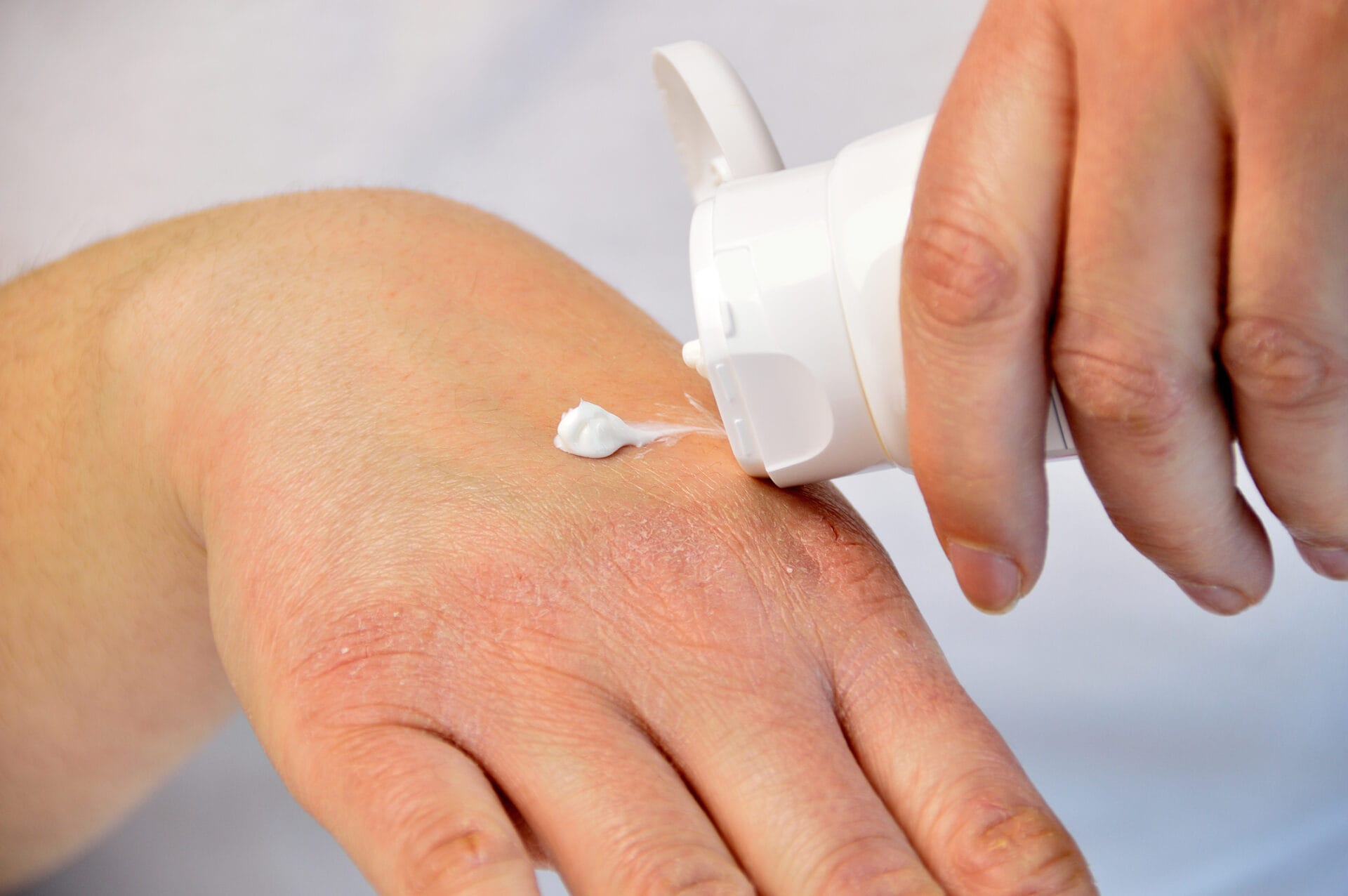The chill of winter often brings the unwelcome companion of dry skin. At MyHealthcare Clinic, we frequently encounter patients seeking relief from the skin that becomes flaky, itchy, and uncomfortable during these colder months.
Understanding the causes and remedies for winter-induced dry skin is crucial. In this blog, we share valuable insights and practical tips, gleaned from our extensive experience, to help you navigate dry skin in winter.
1. Keep Hydrated – Inside and Out
One of the simplest yet most effective strategies for combating dry skin is ensuring adequate hydration. Drinking enough water is fundamental, as it helps maintain the skin’s elasticity and suppleness. External hydration is also important.
A humidifier in your home can counteract the drying effects of central heating, reintroducing moisture into the air. This dual approach of internal and external hydration can significantly alleviate the symptoms of dry skin.
2. Choose Skin Care Products Wisely
Navigating the large number of skincare products available can be daunting. In winter, it’s essential to switch to skincare that provides deeper hydration and protection. Creams and ointments, being thicker than lotions, are more effective in creating a barrier that locks in moisture.
Ingredients to look for include hyaluronic acid, known for its unparalleled hydrating properties; glycerine, which draws moisture to the skin; and ceramides, which help repair the skin’s natural barrier. Avoid products with alcohol and fragrances, as they can further dry out the skin.

3. Gentle Cleansing Routine
A gentle cleansing routine is the cornerstone of winter skin care. Hot showers and baths, although comforting, can strip the skin of its natural oils. Go for lukewarm water instead.
Harsh soaps and body washes can exacerbate dry skin. Choose mild, fragrance-free cleansers that don’t disrupt your skin’s natural balance. After washing, gently pat the skin dry rather than rubbing, and apply a thick moisturiser while the skin is still damp to seal in moisture.
4. Protect Your Skin
Outdoor elements in winter, like cold air and harsh winds, can strip moisture from your skin. Protecting exposed areas with gloves and scarves is a simple yet effective way to reduce skin dryness.
Sunscreen remains a must. The misconception that sunscreen is only for summer is damaging; winter sun, especially when reflecting off snow, can be just as harmful. A broad-spectrum sunscreen can protect the skin from UVA and UVB rays.
5. Diet and Skin Health
The link between diet and skin health is often underestimated. Foods rich in Omega-3 fatty acids, such as fish, nuts, and seeds, support the skin’s oil barrier, crucial for retaining moisture.
Antioxidant-rich fruits and vegetables can also combat skin dryness from within by fighting inflammation and supporting skin repair. Incorporating these foods into your daily diet can have a noticeable impact on your skin’s health and resilience against dry conditions.
When To Get Professional Help
At MyHealthcare Clinic, we advise seeking professional assistance for your winter dry skin in certain situations:
- Persistent Discomfort: If your skin remains dry, itchy, or irritated despite following a comprehensive skincare routine, it may be time to consult one of our doctors. Persistent discomfort can be a sign of underlying skin conditions that require expert attention.
- Skin Damage: When you notice cracking, bleeding, or other forms of skin damage, these are clear indicators that your skin needs more than just over-the-counter treatments. Such symptoms could signify severe dermatological issues.
- Signs of Infection: If you observe symptoms such as redness, swelling, or pain, these might be signs of an infection. It’s crucial to get professional advice from our doctors or dermatologists to prevent further complications.
- Unresponsive to Regular Care: If your skin does not respond to regular moisturising and care routines, this can be a sign that your skin needs a more targeted treatment plan that a GP or dermatologist at our clinic can provide.
- Exacerbation of Pre-existing Skin Conditions: Individuals with pre-existing skin conditions like eczema or psoriasis may find their symptoms worsen during winter. Professional guidance can help manage these conditions more effectively.

Conclusion
Managing dry skin during winter is a comprehensive approach that includes hydration, appropriate skincare, dietary choices, and protection against environmental factors.
These tips, while simple, can make a significant difference in maintaining healthy, hydrated skin throughout the colder months. For those with persistent or severe skin concerns, our team at MyHealthcare Clinic is always ready to provide expert advice and tailored solutions.
Why Choose MyHealthcare Clinic for Your Skin Concerns
At MyHealthcare Clinic, we offer a blend of expertise and personalised attention to address a wide range of skin concerns.
Our team of experienced GPs and dermatologists is dedicated to providing the highest standard of care, ensuring that each patient receives a treatment plan that is specifically tailored to their individual needs. Choose us for a compassionate, expert approach to your skin health.
Book an appointment with us today.
FAQs
Read our most commonly asked questions for more information:
What are the best practices for skin care in winter?
Best practices include staying hydrated, using moisturising skincare products, following a gentle cleansing routine, protecting your skin from cold weather, and maintaining a diet beneficial for skin health.
Are there specific ingredients I should look for in winter skincare products?
Yes, look for ingredients like hyaluronic acid, glycerine, and ceramides, which are known for their hydrating and skin barrier-repairing properties.
How can I protect my skin from the harsh winter weather?
Protect your skin by covering exposed areas with gloves and scarves, using a humidifier to add moisture to indoor air, and applying sunscreen to shield from UV rays.
Can changes in my diet help with dry skin?
Absolutely. Incorporating foods rich in Omega-3 fatty acids and antioxidants can significantly improve your skin’s ability to retain moisture and
How bad should my skin be before I get medical help?
Seek medical help if your skin shows persistent severe dryness, cracking, or signs of infection (like redness, swelling, and pain), or if home care and over-the-counter treatments aren’t effective.
